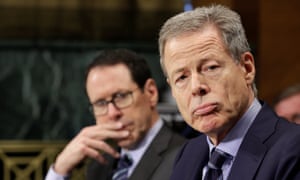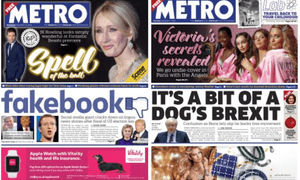NDM News case study: index
1)Institution: the impact of Google on the newspaper industry
2) Ofcom report: how news consumption has changed
3) The future of newspapers: Build The Wall analysis
4) The decline of newspapers: the effect of online technology
5) The future of journalism: John Oliver and Clay Shirky
6) The decline of newspapers: Media Magazine case studies
7) Citizen journalism and hyper-reality: Media Magazine article and questions
8) News Values: theory and updating them for digital media landcape
9) Marxism & Pluralism: Media Magazine article and questions
10) Alain de Botton on the News: lecture and questions
11) Full NDM essay including paragraphs on Marxism and Pluralism
12) Globalisation and news: cultural imperialism
13) Globalisation: taking it further (Google Glass case study and capitalism)
14) Fake news and globalisation - Guardian and New York Times articles
15) News on the Tweet
16)Identities and the Media: Reading the riots
17)January assessment: Learner response
18)Identities: Post-colonial theory & blog tasks
19)MM conference notes
20)Post-colonialism: final blog tasks
21)Post-colonialism - bonus reading and tasks
22)Identities and the Media: Feminism
23)Identities: Feminist theory and blog task
24)Identities: Feminism and new/digital media
25)Media Magazine: The fourth wave?
26)Identities: applying feminism
27)Identities and Film: blog task
28)Identity and the wider media
29)Media and collective identity
2) Ofcom report: how news consumption has changed
3) The future of newspapers: Build The Wall analysis
4) The decline of newspapers: the effect of online technology
5) The future of journalism: John Oliver and Clay Shirky
6) The decline of newspapers: Media Magazine case studies
7) Citizen journalism and hyper-reality: Media Magazine article and questions
8) News Values: theory and updating them for digital media landcape
9) Marxism & Pluralism: Media Magazine article and questions
10) Alain de Botton on the News: lecture and questions
11) Full NDM essay including paragraphs on Marxism and Pluralism
12) Globalisation and news: cultural imperialism
13) Globalisation: taking it further (Google Glass case study and capitalism)
14) Fake news and globalisation - Guardian and New York Times articles
15) News on the Tweet
16)Identities and the Media: Reading the riots
17)January assessment: Learner response
18)Identities: Post-colonial theory & blog tasks
19)MM conference notes
20)Post-colonialism: final blog tasks
21)Post-colonialism - bonus reading and tasks
22)Identities and the Media: Feminism
23)Identities: Feminist theory and blog task
24)Identities: Feminism and new/digital media
25)Media Magazine: The fourth wave?
26)Identities: applying feminism
27)Identities and Film: blog task
28)Identity and the wider media
29)Media and collective identity


